So is it? Is otaku culture sexist?
Yes.
Kinda.
Depends.
It’s a loaded question that depends on what aspects of otaku culture you are considering and how those aspects are being considered. But what exactly is otaku culture? What is sexism?
Sketching a Definition of Otaku Culture
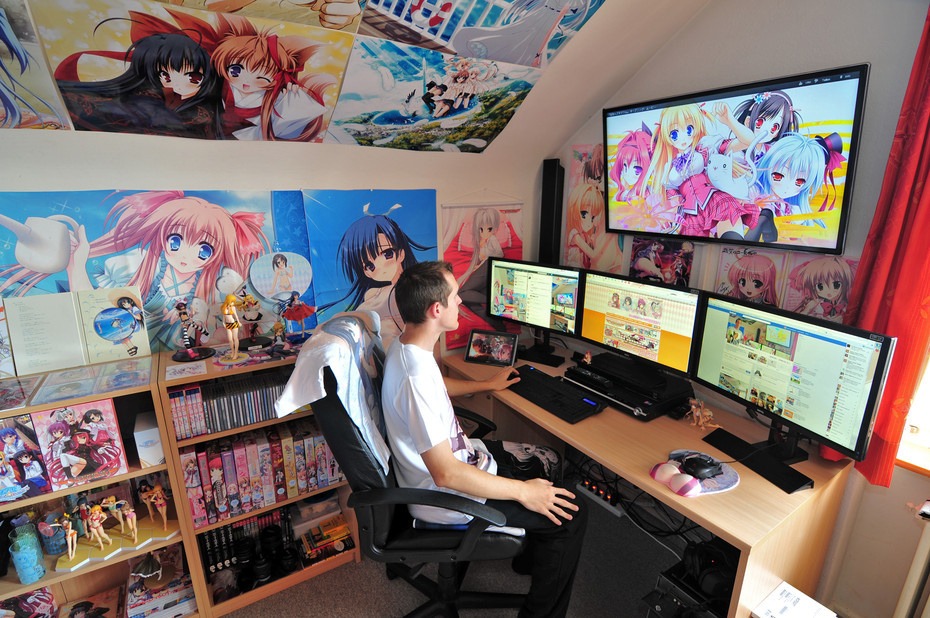
Otaku culture is tough to pin down. Does enjoying anime make you an otaku? Not really. I don’t consider myself an otaku despite having an academic interest in both American otaku culture and Japanese culture. Does an interest in Japanese culture make you otaku? Nope.
Otaku was originally a derogatory term in Japan used to refer to people who were obsessive fans and loners on the edges of Japanese society. The term became a popular label for these people around the 1980s. These people were categorized by being withdrawn and having interests in unconventional topics. They also did not participate in Japanese society. Following a pair of murders in 1988 and 1989 by a self proclaimed otaku, the term became associated with people who were a threat to Japanese social structure (Hairston, 2010). Otakuism retains some of these aspects in the popular imagination such as being withdrawn. However, otakus are actually quite social. The term has a different meaning outside of Japan.
American Otakuism is a self defined culture that merges interest in Japanese popular media, particularly anime, manga, and all the associated consumer products, with a defined lifestyle. An otaku’s preference for a specific subject is often fanatical (Niu, Chiang & Tsai, 2012). The lifestyle consists of socializing with other fans of said popular media, cosplaying, collecting, and identifying with the popular culture. Identifying with all the aspects of otakuism – the conventions, behaviors, collecting habits, and jargon – is what defines an otaku from a fan. Otakuism has its own jargon: waifu, husbando, weeaboo, and a mash of Japanese words. An otaku sometimes spices conversation with Japanese words. Otakuism is a lifestyle that pervades every fabric of a person’s thinking. Otakus that have waifus and husbandos consider what their significant other would think of a certain action. Otakus enjoy collecting figurines, manga, and other products to the point that people consider that collecting habit a part of the otaku’s personality, a hobby.
Okay, with a rough definition of otakuism pinned down. What is meant by sexist?
What is Sexism?
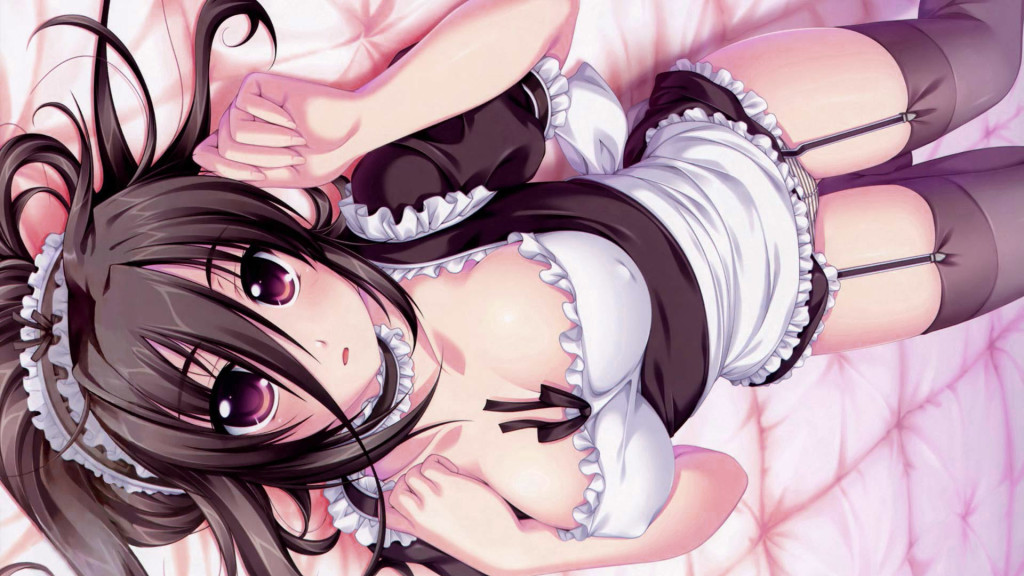 Specifically, sexism is discrimination against women (Sexism, 2014 ). Suzanne Pharr goes further to define sexism as a system that keeps women subordinate to men (Pharr, 1997). More generally, sexism is defined as whenever one sex is believed to be naturally superior to the other, and this superiority is used to keep the inferior sex out of social, political, and economic life (Sexism, 2014).
Specifically, sexism is discrimination against women (Sexism, 2014 ). Suzanne Pharr goes further to define sexism as a system that keeps women subordinate to men (Pharr, 1997). More generally, sexism is defined as whenever one sex is believed to be naturally superior to the other, and this superiority is used to keep the inferior sex out of social, political, and economic life (Sexism, 2014).
So, our question can be rephrased in two ways:
- Does otaku culture discriminate or keep women subordinate to men?
- Does otaku culture consider one sex is superior to the other? Does this superiority lead to discrimination?
The key to understanding sexism is the word discrimination. Sexism seeks to bar one sex from political, economic, and social life (Sexism, 2014).
Some aspects of otaku culture do seem to keep women subordinate to men. Otaku culture revolves around a fiction and pop culture that sometimes degrades women and sometimes degrades men by degrading women. I resent most anime comedies that have the male lead as a pervert and horny devil. Such a character degrades men into this sex crazed impulsive beast. At the same time, it turns women into objects of lust that can be (and should be) possessed by the man. Male otakus that emulate such behavior are acting sexist, but are not sexist. However, those that identify with that behavior are being sexist. This thinking relegates women to be a possession to be owned. Ownership is subordination.
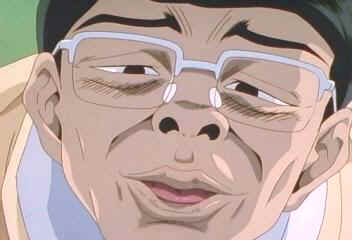 Likewise, women who think all men are sex focused are doing the same. These ways of thinking create a worldview that is damaging.
Likewise, women who think all men are sex focused are doing the same. These ways of thinking create a worldview that is damaging.
Sexism can be subtle and unconscious. Language can be sexist without a person realizing it. This is because discriminatory use of language can be ingrained to the point of being an unconscious habit. A person may not consciously use language because they are sexist. Other people, however, do (Swim, Mallett & Stangor, 2004). Otaku culture has its own language that its members may use without realizing it may be sexist.
Now this isn’t to say everyone who watches such ecchi comedies or fan service stuffed shows are sexist. Those that think the world exists in a way where men are superior or women are superior are sexist. These types of shows (and others in American culture) reinforce this way of thinking when it is already present. Fantasy is harmless to a degree.
Do anime and manga see one sex as superior?
 I would say yes: women are considered superior.
I would say yes: women are considered superior.
Despite anime coming from a male dominate culture, women are held up as superior to males. One of the driving motivations of shonen stories is the desire to protect those the hero loves. Often this is a female character. While this seems chauvinistic (she can’t take care of herself? Please!) , it is actually a show of how superior women are seen. They are worth giving everything. Sacrificing everything.
Yeah, it is hard to see this when boobs are jiggling and the camera is pointing up her skirts, but this relegation of women to an object is a perverse way of expressing superiority. Women are objects of worship; they are held up as unobtainable. All a boy can do is look, he is never, ever able to touch her. He can only own her in his fantasies, but anime and media promises reality as being so much more.
Granted, this fetishism still reduces women to an object or something she cannot ever achieve. Consider American culture for a moment. We see impossibly perfect women (and men) in glossy magazines and on screens. Never mind how people cannot look that way without digital help. These ideas of beauty are designed to make people feel inferior. For men, these women are unobtainable objects that are meant worshiped.
Women are also portrayed as superior because they are guiding influences. In anime like Fullmetal Alchemist, Winry is one of Edward Elric’s guides. She keeps him going during his darkest moments. Anime women are also self sacrificing whereas the hero is often selfish in how he sacrifices. The female character sacrifices without seeking anything in return. These ideas seep into otaku culture in various degrees.
The superiority of women is a strange way of being sexist. It lifts women up to a level that removes humanity. She is “above” the social, political, and economic concerns us lesser humans need to worry about. However, the end result of the goddess idea is still discrimination. Rather than being held low, the goddess is seen as more than human and conversely less than human. She is still being discriminated against.
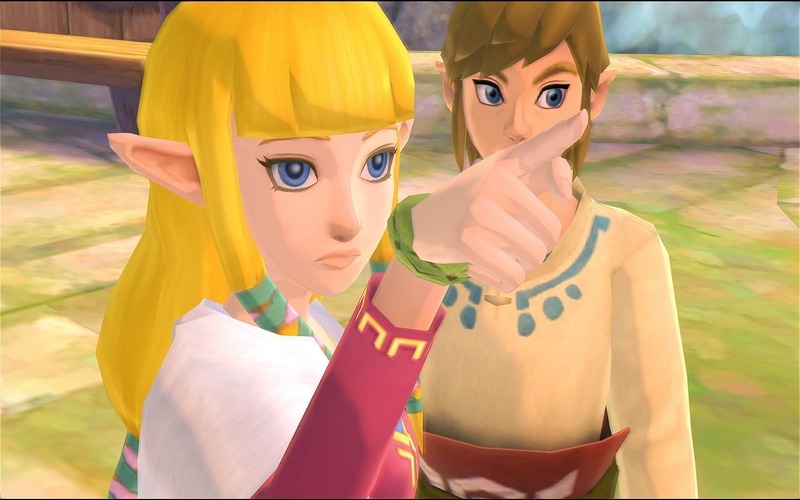 There are times when the goddess idea is not sexist. Zelda in The Legend of Zelda: Skyward Sword is a goddess character that avoid sexism. She is a strong character in her own right. She goes on her own quest into dangerous dungeons well ahead of Link. She still ends up the damsel in distress, but this is after she gives everything to save Link’s life and fulfill her mission. Link is merely returning the favor in this case. Zelda is seen as an equal with link as well as a guiding goddess character.
There are times when the goddess idea is not sexist. Zelda in The Legend of Zelda: Skyward Sword is a goddess character that avoid sexism. She is a strong character in her own right. She goes on her own quest into dangerous dungeons well ahead of Link. She still ends up the damsel in distress, but this is after she gives everything to save Link’s life and fulfill her mission. Link is merely returning the favor in this case. Zelda is seen as an equal with link as well as a guiding goddess character.
This doesn’t mean otaku culture or anime is sexist just because women are often held up as goddesses. It does speak about problems with this impossible portrayal of women, but that is another article. Sexism is about discrimination. Does the superior status of women in some anime lead to discrimination? No. Quite the contrary, these female characters are driving forces of the storyline and strong characters in their own rights. Do boob jiggle or panty shot characters suffer from discrimination? In most anime I’ve seen: no. High School of the Dead was rife with this stuff, but the women were capable and not held to lower standards.
Because otaku culture is an outgrowth of anime/manga, we have to look at anime/manga to get a feel for the culture.
“This blogger knows nothing about being an otaku!”
Okay, perhaps you think I am just writing nonsense. You are right. I am an outsider looking in. Otakus I’ve observed seem to hold women in high regard despite their perversity. I also know of otakus that believe women should be in the kitchen waiting for him in only an apron.
In two words: it depends.
Otakuism, like any lifestyle, is an individual affair. Some otakus are going to be sexist. Other otakus are feminists. Some lack any position on the matter. Is otaku culture inherently sexist? No.
There is nothing about Japanese popular media that is inherently sexist. Some anime series are. Others are not. Japanese media is no more or less sexist than American media. It is simply different in emphasis.
Can an otaku collect sexy figurines, have a waifu, and still be considered a feminist? Yep.
There is nothing wrong with enjoying the beauty of the opposite sex. Sexism is the subordination of women. It is the idea that one sex is superior and must be kept out of political, economic, and social life. Sexism is not feeling attraction toward a particular character or enjoying how women/men look. Sexism is about attitude and behavior toward women (and men). What is your attitude about women?
You might be sexist if (and this is a simplified list):
- You believe women need to be in the kitchen or at home.
- You believe women should be sexually available.
- You believe women should not be in management.
- You believe women are less intelligent and more emotional than men.
Fan Service, Otaku Culture, and Sexism
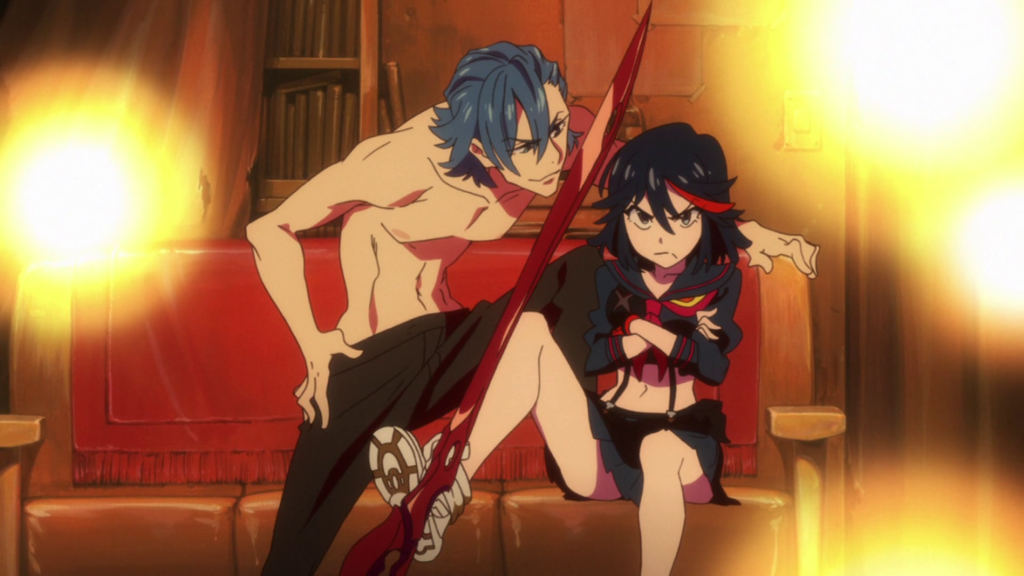 Kill la Kill sparked a lot of controversy with its strong female characters being shown in pornographic (or at least fetish) poses. Is is sexism? Some think so. However, Kill la Kill does not discriminate against women. The female characters are strong and are the leaders of the world. If it was a sexist anime, men would be in the lead positions pitting the women against each other. These men would then watch. Rather, men in Kill la Kill are almost invisible. There are a few male characters that are soundly beaten into the dirt.
Kill la Kill sparked a lot of controversy with its strong female characters being shown in pornographic (or at least fetish) poses. Is is sexism? Some think so. However, Kill la Kill does not discriminate against women. The female characters are strong and are the leaders of the world. If it was a sexist anime, men would be in the lead positions pitting the women against each other. These men would then watch. Rather, men in Kill la Kill are almost invisible. There are a few male characters that are soundly beaten into the dirt.
If anything, Kill la Kill could be considered discriminatory against men because of this and the emphasis on trying to titillate a male audience with skimpy outfits as if men were only interested in the story because of those outfits. Kill la Kill is only a single example of this. I find such views of men insulting.
In any case, we have to ask if a certain fan service scene is meant to be discriminating. If so, then it encourages sexism. Remember, sexism is different from objectification. As I attempted to illustrate, objectification is related to sexism, but is not inherently a part of it. A goddess view of a female is objectification, but it is not sexism. Otakuism is guilty of objectification, just like American culture, but it is not inherently sexist. Objectification is simply a result of commodification. Objects exist to be sold. A character that is objectified will sell products. Sexism is about attitude and view points. It is about viewing one gender as inferior.
So to end this long winded article with a straight answer:
Is otaku culture sexist?
No. There are elements of sexism in some anime and manga stories. Some male and female otakus are sexist. However, otaku culture itself is not sexist. It is made up of too many different types of people to be called sexist as a whole.
References
Hairston, M (2010) A Cocoon with a View: Hikikomori, Otaku, and Welcome to the NHK. Asian and Pacific Studies. 5. 311-323.
Niu, H., Chiang, Y., & Tsai, H. (2012). An Exploratory Study of the Otaku Adolescent Consumer. Psychology & Marketing, 29(10), 712-725. doi:10.1002/mar.20558
Pharr, S. (1997) Homophobia: A Weapon of Sexism. http://www.csusm.edu/sjs/documents/homophobiaaweaponofsexismcondensed.pdf.
Sexism. (2014). Dictionary.com http://dictionary.reference.com/browse/sexism.
Swim, J. K., Mallett, R., & Stangor, C. (2004). Understanding Subtle Sexism: Detection and Use of Sexist Language. Sex Roles, 51(3/4), 117-128.


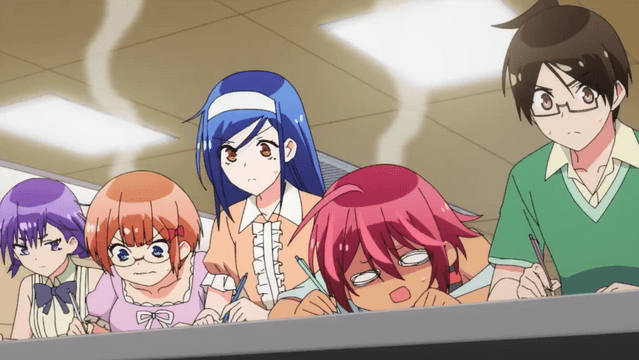
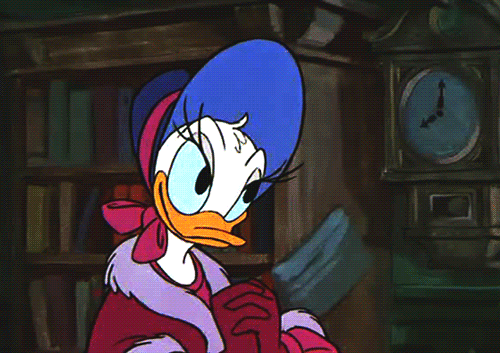
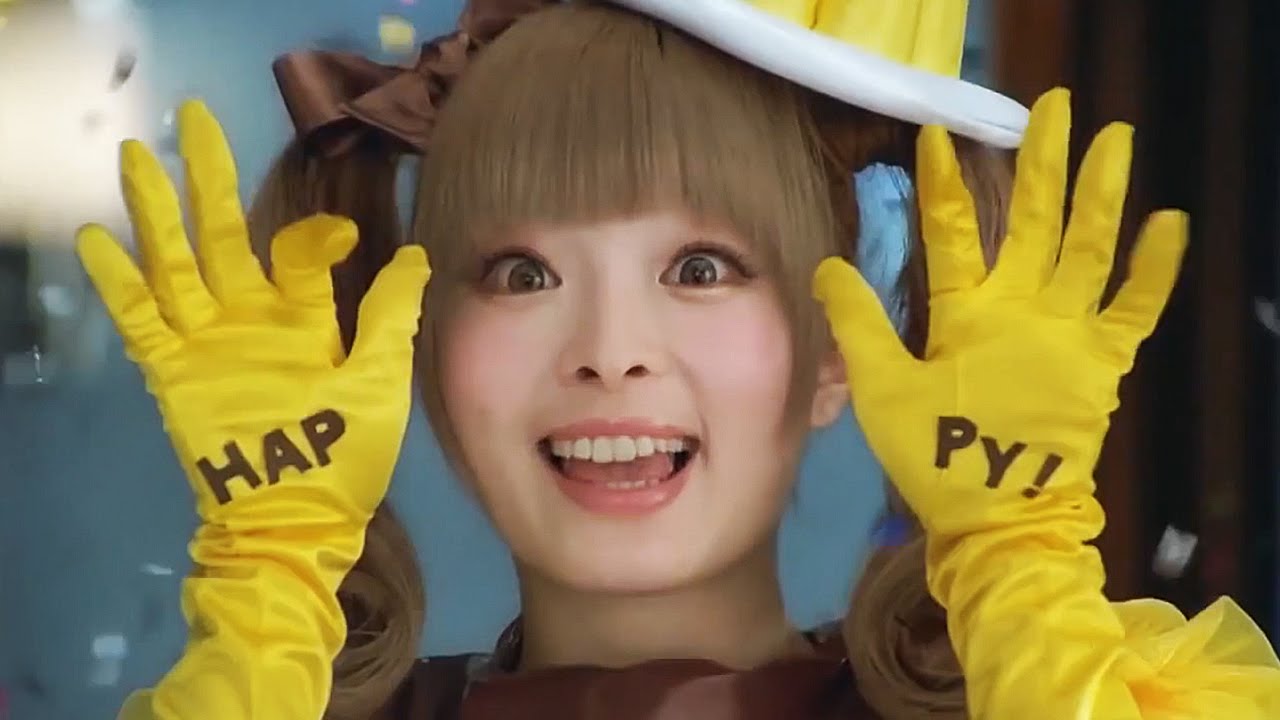

I know this is old, and hopefully your views have matured, but it seems that you misunderstood the meaning of sexism in this post. I am assuming here based on what has been said, that you feel Transformers was not sexist because the woman played by Megan Fox is a “strong woman”. It does not work that way. When you work to sexualize your characters while making them strong, it works to invalidate the character and really serves to reduce them to being eye candy. It is especially so when the vast majority of male characters do not show anything risque, and are rarely put in situations that titillate a straight female audience. When only the women or girls in the show have impractical and sexualized clothing or end up in sexual situations (note: if a man in the show ends up in sexual situations, the sexual content may not appeal to females at large), it becomes obvious who the shows are geared to.
Additionally, many of the women that are perceived as strong females in anime are devoid of any real personality. Being good at everything does not make you seem real; it makes you a variant of the Mary Sue.
Objectification is a form of sexism in that it reduces a person or groups of people to the status of being object or objects, respectively. By reducing someone to an object, you are removing their humanity and viewing them as only something to titillate you. For a person interest in otaku culture, maybe you need to re-take a women’s study class because your arguments were flawed from top to bottom, and came across as justifying the sexist behavior present in the shows and by its fans. Did you ever ask a few women if they found objectification sexist before you wrote this?
I also find it amusing that one of the few examples you listed was Winry from Full Metal Alchemist. That series is written by a woman,so it kind of cheapens your argument when you use a work written by a woman to explain why it is not sexist. Why not have presented one written by a man (besides the controversial Kill la Kill)?
If you look at the vast majority of anime series, they are indeed sexist. Japanese society (as well as otaku culture) are sexist. Look at the amount of objectifying material the Japanese have – from the maid cafes to the abundant amounts of sexualized content via hentai, porn, anime, and other media. Were you aware of the separate trains that women have for rush hour to avoid gropers? Or that the language is littered with terms still used today that are sexist? Uncertain if you ever studied Japanese, but I have several years of study under my belt and have talked with Japanese women and men from Japan:
家内 (Kanai) The word for wife and literally means “inside the house”
女以下 (Onna Ika) ”Worse than a woman”
石女 (Uma Zume) Insult thrown at women in Japan who cannot give birth. Literally means ‘stone woman’
ご主人 (Go-shujin) Means “husband” or “master”
These are just some examples that are present in the language. You may think that that means nothing, but in studying different languages, you can find out about the cultures and values present. Many of the more sexist words are starting to disappear, but some still remain.
Thanks for your comment! Let me address a few of your points.
Strong women are often objectified and victims of sexism, as I point out in the article. In many anime and movies, women are held up as goddesses or strong women, yet this is a form of sexism because it leads them to discriminated against–they are seen as more than human. They are objectified with skimpy outfits which suggest no matter how strong they are the male gaze can still possess them. I then point out how strong women can be avoid this problem by using Zelda from Skyward Sword. The strong man trope is also a form of sexism for that matter.
When I wrote this, I had a male issue in mind. Many males hold women as superior to men (as does manga and anime to some degree as I attempt to argue in the article). This view leads many men to objectifying and discriminating women, if in a different way than the more common base view of “get in the kitchen and make me a sandwich.” Instead, these men think women are to be coddled and served, placing impossible expectations on them. It has a distinct voyeuristic element to it that anime leverages for sales.
I had spoken with women about this topic at length. Most I know separate sexism (which is discrimination) and objectification (which is a viewpoint that underpins sexism), While they overlap, they are separate issues. You can have gender discrimination without objectification, likewise you can have objectification without discrimination (I know men who rally behind women’s rights in the public sphere and genuinely support equal opportunity, yet they also still objectify women with their sexual preferences). In my classes we discussed how objectification creates sexism. It sounds like we are on the same side but are only apart in emphasis : ).
I’m uncertain why Winry cheapens the argument. I was addressing otaku culture itself rather than anime and manga. The fact she exists is a credit to anime and manga (and to otaku culture to a certain degree for embracing her…although branches of it do sexualize her too, sadly.
I certainly agree many aspects of otaku culture are sexist, but I caution such blanket statements because it also includes all people who consider themselves part of the culture. And not everyone is sexist. Yes, I am aware of gropers on trains and the language examples you point out. In fact, I have an article in the queue that addresses such.